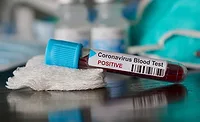Pharmaceutical Companies, Interpol Team Up to Fight Counterfeits
Twenty-nine of the world’s largest pharmaceutical companies have agreed to provide funding and other support to Interpol’s battle against counterfeit prescription drugs, according to The Associated Press.
Interpol’s newly created Pharmaceutical Crime Program aims to help health agencies, police and customs bureaus in countries around the world stem the supply of fake brand-name and generic medicines, as well as identify and dismantle the organized crime rings distributing them, the article says.
Those crime rings operate across borders and are making billions of dollars annually, which costs legitimate drug makers a small fortune in lost revenue, AP reports. The World Health Organization estimates that sales of counterfeit, contaminated or illegal medicines total $430 billion a year.
Meanwhile, patients who unknowingly take the counterfeit drugs are often poisoned or get sicker. Experts estimate that thousands of people around the world die because of counterfeit medicines every year.
In developing countries, AP reports, up to 50 percent of the drug supply may be fake.
The companies have pledged nearly $5.9 million over three years to help Interpol with training local law enforcement on investigative procedures, evidence handling and how to work better with partners outside their countries, the article says.
Interpol will also help those local authorities build up their infrastructure and target enforcement actions against the crime rings, which also divert medication illegally to countries where it isn’t approved.
Counterfeiting has been a difficult arena for Interpol because of the agency’s limited resources, which are often relegated for areas that international community sees as more serious crimes – human trafficking, narcotics dealing, terrorism and money laundering, to name a few.
AP also reports that the pharmaceutical companies will step up sharing intelligence with Interpol. The agency will also run pilot programs, experimenting with new strategies to be more effective.
Looking for a reprint of this article?
From high-res PDFs to custom plaques, order your copy today!








